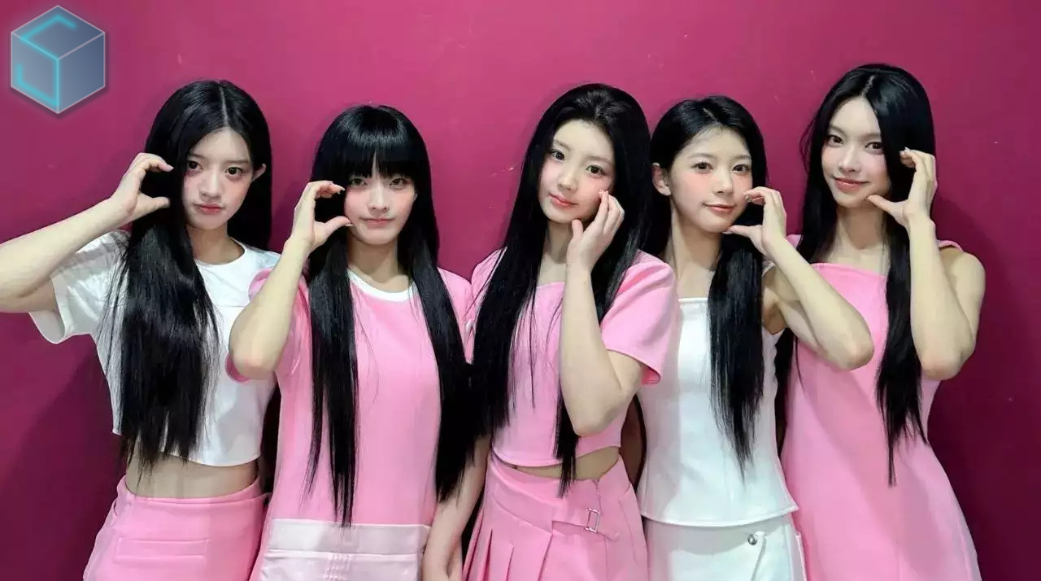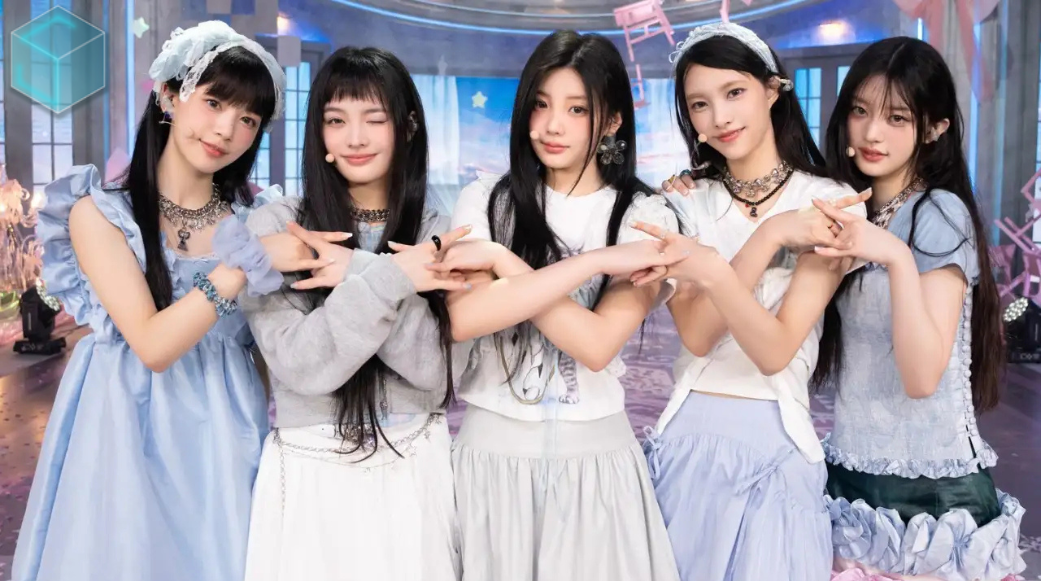
August 11, 2025
From August 1–3, Parc Jean-Drapeau wasn’t just a park, it was the main character. Osheaga 2025 rolled in with enough vibes to power your entire summer playlist, turning the city into a three-day...
Read more
August 11, 2025
In the ever-shifting world of K-pop, new groups arrive every year, but when BigHit Music announces a debut, the industry listens. Just days before BTS gears up for their long-awaited comeback, the...
Read more
August 11, 2025
When ILLIT dropped “Billyeoon Goyangi,” they probably didn’t expect to turn TikTok into one giant dance floor, but here we are, thousands of creators spinning, twirling, and body-rolling like their...
Read more
August 11, 2025
In a year where streaming milestones are harder to hit than that high note in ANTIFRAGILE, LE SSERAFIM has officially crossed 1 billion Spotify streams in 2025. The self-proclaimed fearless queens...
Read more
August 11, 2025
Imagine dropping your debut single and poof, you're suddenly everywhere. That’s exactly how ILLIT entered the scene with “Magnetic.” This banger didn’t just drop; it detonated, sending viral...
Read more.png)
August 11, 2025
The Soul Train Awards and Hip-Hop Awards, two cornerstone events celebrating Black music and culture, have been suspended by BET. The news was confirmed by BET CEO Scott Mills in an interview with...
Read more.png)
August 11, 2025
When Memphis rapper GloRilla's October 2024 debut album Glorious, one track left everyone talking; "Rain Down on Me," featuring gospel heavyweights Kirk Franklin, Maverick City Music, Kierra...
Read more.png)
August 11, 2025
When the Kansas City Chiefs' three-peat dreams collapsed at Super Bowl LIX, the real drama wasn't just on the field it was in Travis Kelce's VIP box where Taylor Swift and Machine Gun Kelly were...
Read more.png)
August 10, 2025
In a powerful fusion of music and philanthropy, some of today’s most celebrated artists are stepping onto the stage not just to perform, but to make a difference. Stand Up To Cancer (SU2C) returns...
Read more.png)
August 10, 2025
The Juno Awards are officially recognizing the powerful rise of Latin music in Canada. Starting in 2026, the annual awards ceremony will feature a brand-new category: Latin Music Recording of the...
Read more.png)
August 7, 2025
Read more.png)
August 7, 2025
Guitarist, songwriter, and frontwoman of Covet, Yvette Young, is known for her intricate tapping technique, genre-bending sound, that creates a calm presence. But in a new interview, the math rock...
Read more.png)
Every great musician has a distinct voice that defines their sound. Think of Billie Joe Armstrong from Green Day, Axl Rose of Guns N' Roses, or Dave Mustaine from Megadeth. Imagine Green Day without Billie Joe's snarl or Guns N' Roses without Axl's gritty wail. It’s hard, right? That's because their voices aren't just an instrument—they’re a signature that makes their music instantly recognizable.
But how did these artists find the melodies, phrases, and styles that perfectly matched their voices? Was it a process of trial and error, or did they have a clear idea of their sound from the start?
One of the most important things to understand is that every voice has its unique timbre—a tonal quality or color that makes it special. People have compared your voice to that of Frank Sinatra, suggesting a richness suited to crooner or jazz styles. But you’re also curious about exploring genres like rock, punk, or grunge. This curiosity is crucial; it shows that you’re open to experimentation, which is a big part of finding what suits your voice best.
Example: Billie Joe Armstrong didn't have the traditional punk rock voice when he started. His vocal timbre was closer to pop-punk—a bit nasally, yet melodic. Over time, he leaned into this uniqueness, embracing his range and using it to craft melodies that were simple but instantly catchy. By understanding his voice’s limits and strengths, he was able to create a style that felt authentic and recognizable.
Most iconic musicians didn’t find their sound overnight. They experimented, played with different genres, and sometimes even failed. Axl Rose, for instance, started with a choir background before finding his raw, high-pitched voice that defined Guns N' Roses. His range is notoriously wide, but he honed his craft by experimenting with different vocal techniques and pushing his limits, finding what worked and what didn’t.
If you have a voice that people associate with jazz, don’t feel restricted by it. Many greats have pushed the boundaries of their expected genres. Think of Kurt Cobain, whose voice wasn’t considered “technically” good by classical standards, yet he became an icon in grunge. His uniqueness lay in his raw, unpolished delivery, which resonated with people precisely because it was genuine and different.
Your vocal range being similar to Billie Joe Armstrong’s gives you an advantage. Knowing your limitations helps you find melodies that fit within your range while still allowing you to express yourself fully. Armstrong’s range isn’t extremely high, but he plays with his voice’s character, often keeping his melodies simple yet impactful.
When writing melodies, consider:
Ultimately, much of the magic happens when you “fuck around and find out.” Experimentation and iteration are key. Musicians like Axl Rose and Dave Mustaine spent years developing their sound by writing, rewriting, and experimenting. They weren't afraid to try different styles, push their voices, and even fail in the process.
Dave Mustaine, for example, had to figure out how to sing while playing intricate guitar riffs, which led him to develop a vocal style that was rhythmic and direct, perfectly complementing his thrash metal sound.
The secret sauce is often a blend of influences combined with your unique voice. Many artists draw inspiration from multiple genres. If you want to sing jazz, rock, punk, and grunge, start by listening to and studying the phrasing, melodies, and rhythms of these genres. Then, try incorporating elements into your practice. For example, you could use jazz-style scatting techniques to create unexpected vocal phrases in a rock or punk context.
Finding your voice is an ongoing journey that requires a mix of understanding your unique timbre, embracing experimentation, and blending genres and influences. Remember that even the most iconic musicians didn't have it all figured out at the start. They learned by doing, by pushing boundaries, and by understanding their voice’s unique qualities. So, explore, experiment, and, most importantly, stay true to your sound.